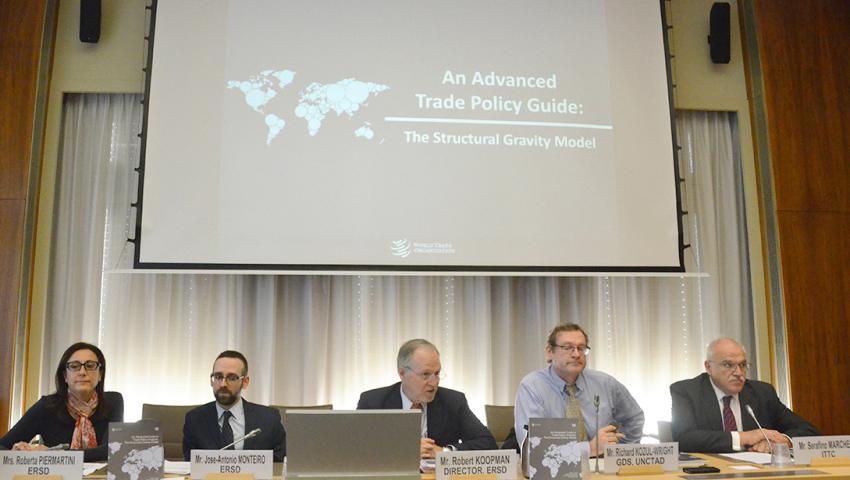WTO-UNCTAD launch new guide to trade policy analysis

Tuesday, November 15, 2016
A new book on trade policy analysis was launched today (15 November) by the WTO and the United Nations Conference on Trade and Development (UNCTAD). “An Advanced Guide to Trade Policy Analysis: The Structural Gravity Model” outlines one of the most successful tools for the analysis of trade policy and provides practical guidance on how to apply this tool to trade policy making.
The book is a follow-up to “A Practical Guide to Trade Policy Analysis”, which was published in 2012. The series aims to help researchers and policy makers enhance their understanding of economic methods and data sources for trade policy analysis. Written in collaboration with academics, each book is premised on the fact that good policy making needs to be backed up by good analysis.
The need for trade policy analysis has become particularly evident in recent years as questions have been increasingly asked about whether the gains from trade exceed the costs of trade. It is important, therefore, for policy makers and others to have access to reliable information on the effects of trade policies.
The most innovative feature of the series is that it combines detailed explanation of analytical techniques with a guide to the data needed to undertake analysis. It also contains a tutorial in the form of empirical applications and exercises.
This new volume responds to requests from government officials and researchers in developing countries to extend the analysis of trade policy effects from partial to general equilibrium. This new publication focuses on the gravity model.
The gravity model is one of the most successful frameworks in economics. Hundreds of papers have used the gravity model to study and quantify the effects of various factors on international trade. This book guides the reader through the challenges of applying the model and provides recommendations on how to obtain reliable partial equilibrium estimates for the effects of trade policy.
The book extends the analysis of trade policy to a general equilibrium setting, guiding the reader through all the necessary steps and required data to undertake the analysis. The book has been written by experts who have rich practical experience in this field. The WTO and UNCTAD are particularly indebted to Professor Yoto Yotov and Professor Mario Larch, who have supported the project and developed the methodology to perform the general equilibrium analysis presented in this book.
This advanced guide is targeted at economists and policy makers with extensive experience in applied research and analysis. Readers with less experience may wish to first undertake the exercises proposed in the "Practical Guide to Trade Policy Analysis.

